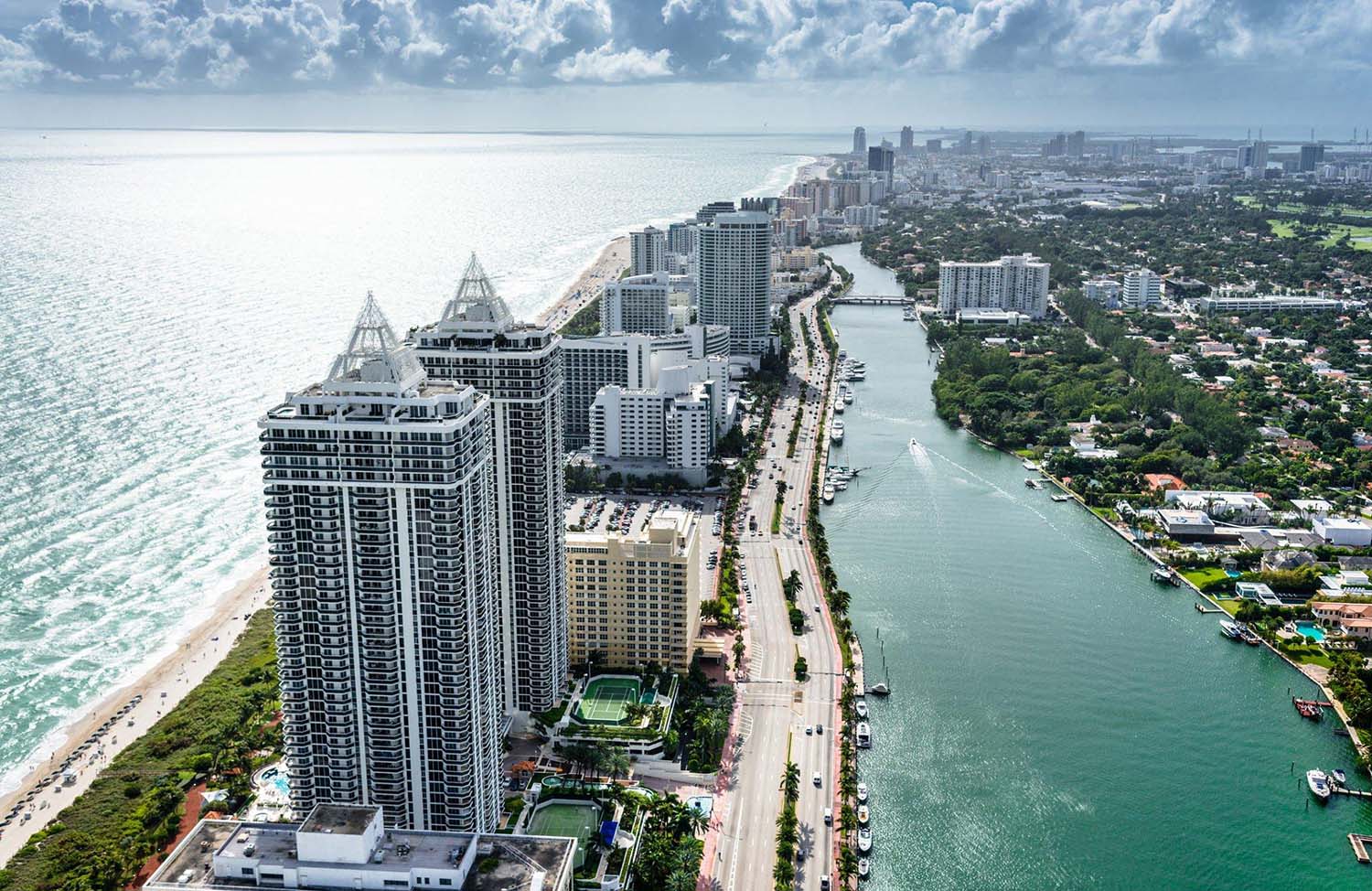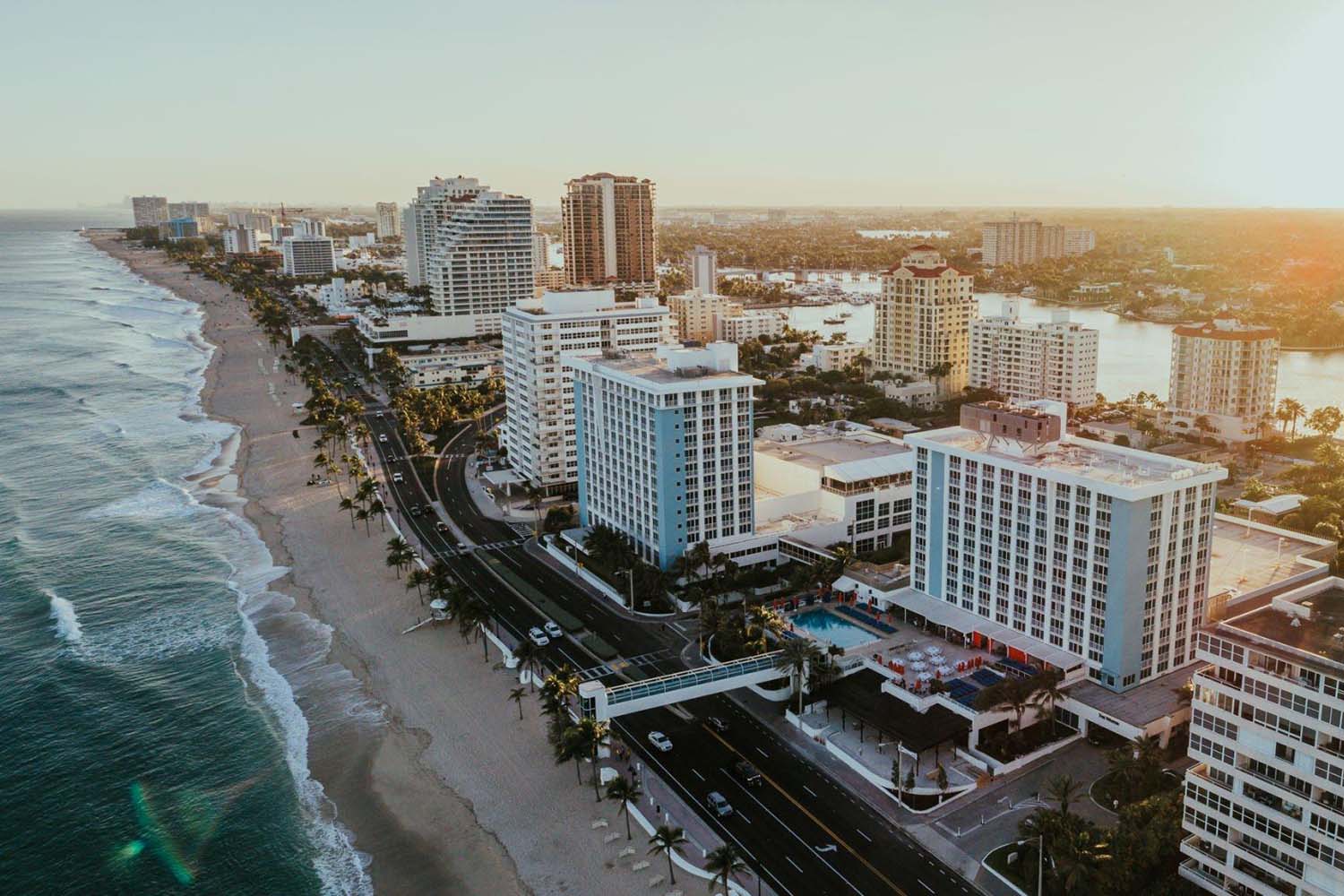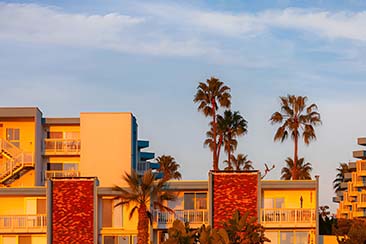Fort Lauderdale is a popular destination for both tourists and residents alike, offering beautiful beaches, lively nightlife, and a wide range of activities. However, many people are curious about the cost of living in this sunny paradise. Let’s take a deep dive into the various aspects of the Fort Lauderdale cost of living, so you can decide if it’s the right place for you.

What Is The Cost Of Living in Fort Lauderdale?
Housing
Renting
Renting a home in Fort Lauderdale is generally more expensive than the national average. According to data from 2021, the average rent for a one-bedroom apartment in Fort Lauderdale is around $1,700 per month, whereas the national average is closer to $1,200. Of course, prices can vary greatly depending on the area and the size of the rental property.
Buying
If you’re considering buying a home, Fort Lauderdale’s housing market is relatively stable, with prices higher than the national average. The median home value in Fort Lauderdale is around $380,000, compared to the national average of approximately $320,000. Like with renting, the price of a home can vary significantly depending on the neighbourhood and size of the property.
Transportation
Public Transportation
Fort Lauderdale offers various public transportation options, including buses, a commuter rail system (Tri-Rail), and the free Sun Trolley service. A one-way bus fare costs $2, while a monthly pass is available for $58. The Tri-Rail system connects Fort Lauderdale to Miami and West Palm Beach, with fares based on the distance traveled.
Car Ownership
If you prefer driving, be prepared to pay slightly more for gas than the national average. As of 2021, gas prices in Fort Lauderdale are around $3 per gallon. Keep in mind that car insurance rates and parking fees can also add to your transportation expenses.
Biking and Walking
Fort Lauderdale is a bike-friendly city with numerous bike lanes and trails. Walking is also a viable option in many areas, especially around downtown and the beach. Both of these options can help you save on transportation costs while enjoying the beautiful weather.

Food and Groceries
Grocery Stores
Grocery prices in Fort Lauderdale are similar to the national average, although some items may be slightly more expensive due to the region’s higher cost of living. You can find a variety of grocery stores, from large chains like Publix and Walmart to smaller specialty stores and farmers’ markets. Shopping around and comparing prices can help you find the best deals on groceries.
Dining Out
Eating out in Fort Lauderdale offers a diverse range of options, from budget-friendly fast food to upscale restaurants. A meal at an inexpensive restaurant can cost between $10 and $15, while a three-course meal for two at a mid-range restaurant might set you back around $50 to $70. Prices can vary greatly depending on the location and type of cuisine, so keep this in mind when budgeting for dining out.
Utilities and Telecommunications
Utility costs in Fort Lauderdale are generally higher than the national average. On average, residents can expect to pay around $150 to $200 per month for basic utilities like electricity, water, and trash services. Keep in mind that air conditioning usage during the hot summer months can increase your electricity bill.
Telecommunications, such as internet and cable TV, can vary depending on the provider and the plan you choose. You can expect to pay around $60 to $100 per month for a high-speed internet connection, while cable TV packages can range from $30 to over $100 per month.
Healthcare
Healthcare costs in Fort Lauderdale are generally in line with the national average. Florida has a slightly higher-than-average rate of uninsured residents, but the state has expanded Medicaid coverage, which helps many residents access affordable healthcare. It’s essential to research and choose a healthcare plan that fits your needs and budget.
Education
Public Schools
The public school system in Fort Lauderdale is operated by Broward County Public Schools, the sixth-largest school district in the United States. The district offers a variety of schools, from elementary to high school, with many offering specialised programs and extracurricular activities. Public education is funded by tax dollars, so there are no tuition fees for attending public schools.
Private Schools
Fort Lauderdale is also home to several private schools, which can vary significantly in cost. Tuition for private schools can range from a few thousand dollars per year for elementary schools to over $20,000 per year for high schools. Many private schools offer financial aid and scholarships to help offset the cost.

Entertainment and Recreation
Beaches
Fort Lauderdale is famous for its beautiful beaches, which are free to access. However, you may need to pay for parking, beach chairs, or umbrella rentals, depending on your preferences.
Parks and Outdoor Activities
The city offers numerous parks and recreational areas, many of which are free or have minimal entrance fees. Outdoor activities, like golf, tennis, and boating, are popular in the area, but the costs can vary depending on the facility and equipment rental fees.
Nightlife
Fort Lauderdale has a vibrant nightlife scene, with many bars, clubs, and live music venues. The cost of a night out can vary greatly, depending on your choice of entertainment and the venue. Drinks at a bar or club can range from $5 to $15, while cover charges and ticket prices for live events may also apply.
Taxes
Florida has no state income tax, which can be a significant financial benefit for those living in Fort Lauderdale. However, residents are still subject to federal income taxes, property taxes, and sales taxes. The sales tax rate in Fort Lauderdale is 7%, which is slightly higher than the national average of around 6.5%.

Comparing the Cost of Living
Overall, the cost of living in Fort Lauderdale is higher than the national average, mainly due to higher housing and utility costs. However, the absence of state income tax and the city’s many free and low-cost attractions can help offset these expenses.
Living in Fort Lauderdale: Pros and Cons
Pros Of Living in Fort Lauderdale
1 – Beautiful Beaches: Fort Lauderdale boasts miles of picturesque beaches, offering residents the chance to enjoy sunbathing, swimming, and various water sports year-round.
2 – Pleasant Weather: With warm temperatures and abundant sunshine throughout the year, Fort Lauderdale is a popular destination for those seeking a tropical climate.
3 – No State Income Tax: Florida is one of the few states with no income tax, which can result in significant savings for residents.
4 – Vibrant Nightlife: Fort Lauderdale has a lively nightlife scene with a variety of bars, clubs, and live music venues catering to different tastes.
5 – Outdoor Recreation: The city offers a wide range of outdoor activities, such as boating, golf, tennis, and fishing, allowing residents to take full advantage of the beautiful weather.
Cons Of Living in Fort Lauderdale
1 – Higher Cost of Living: Fort Lauderdale’s cost of living is higher than the national average, primarily due to increased housing and utility costs.
2 – Traffic and Congestion: Like many popular cities, Fort Lauderdale can experience traffic congestion, especially during peak hours and tourist season.
3 – Hurricane Season: Fort Lauderdale is susceptible to hurricanes and tropical storms from June to November, which can cause property damage and disruptions to daily life.
4 – Rising Sea Levels and Flooding: Due to its coastal location, Fort Lauderdale is vulnerable to the effects of climate change, including rising sea levels and increased flooding.
5 – Tourist Crowds: As a popular tourist destination, Fort Lauderdale can become crowded during peak travel times, leading to increased traffic and longer wait times at attractions and restaurants.
Living in Fort Lauderdale has its pros and cons that you should consider before moving there. Another important thing to consider is the relocation process. It can become a real stress especially if you have tons of things to move. A Fort Lauderdale moving company will assist you in every step of your relocating process and keep your belongings safe during the moving process.








